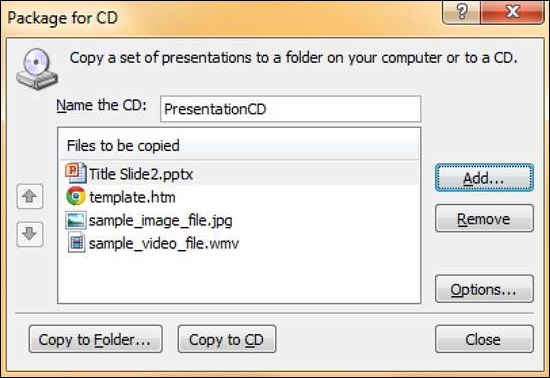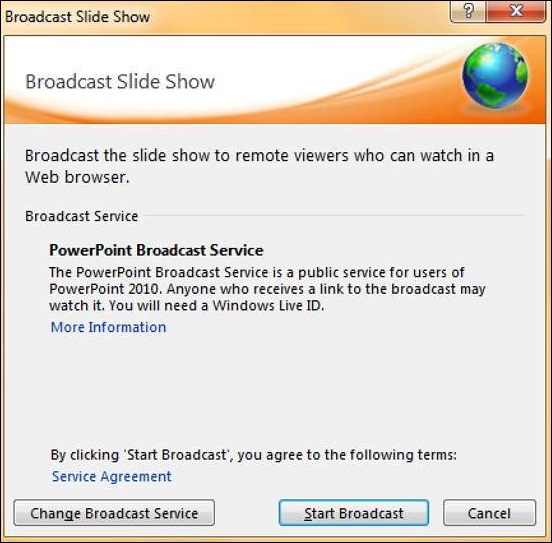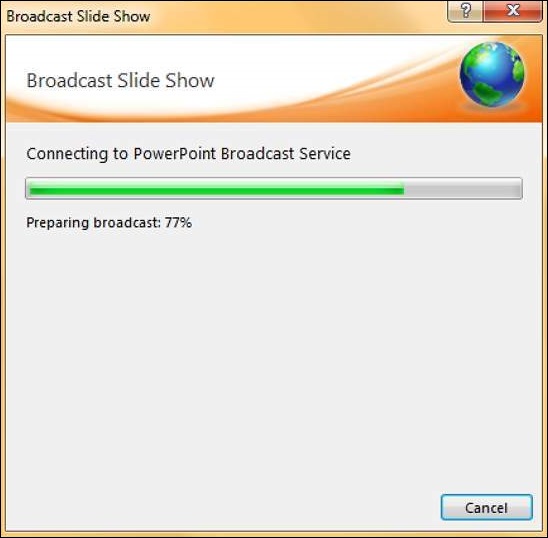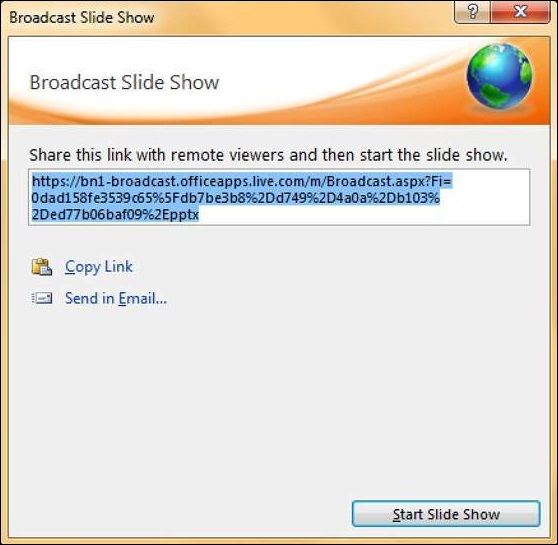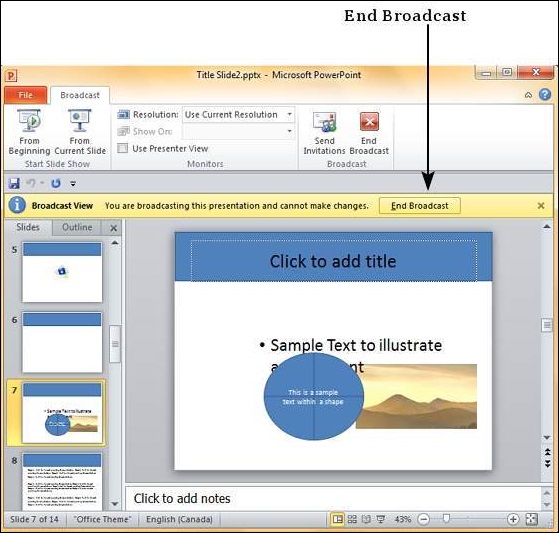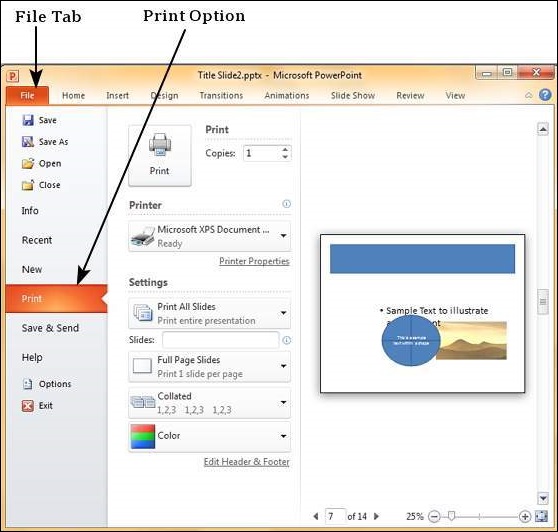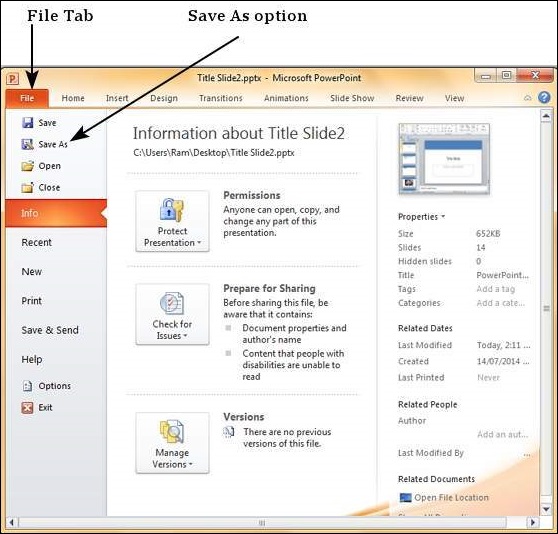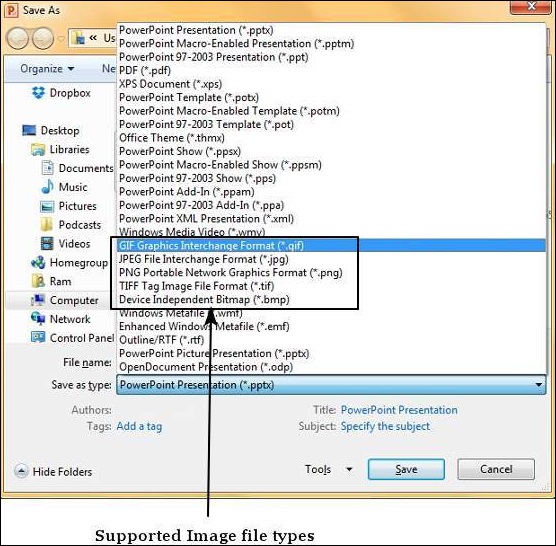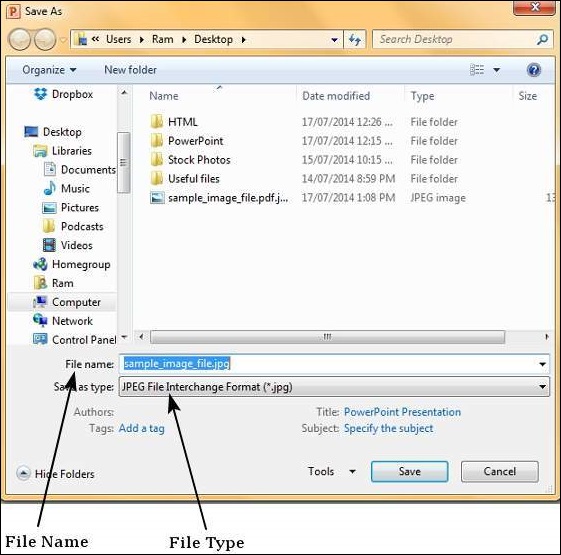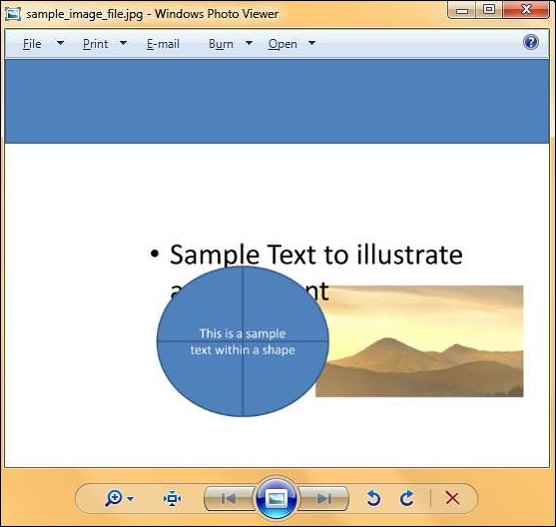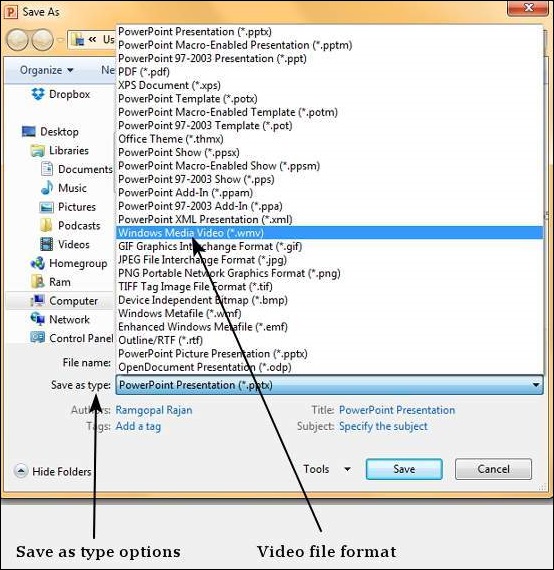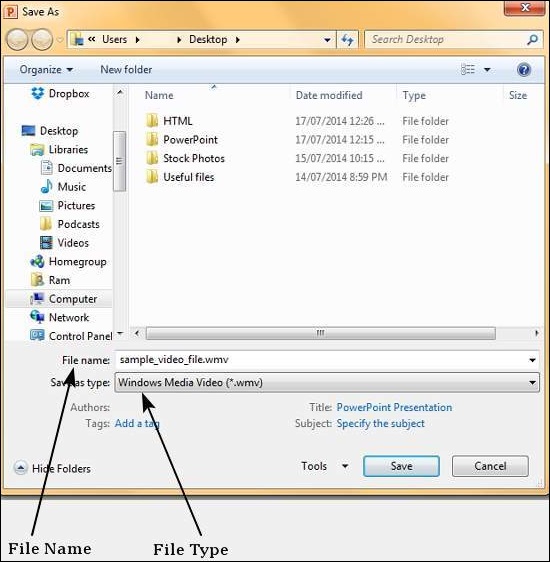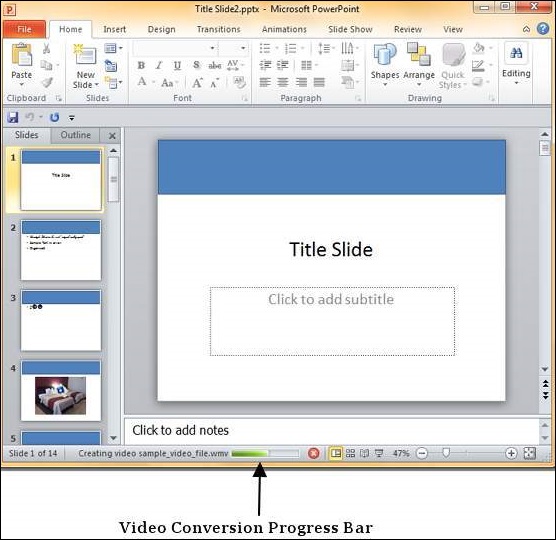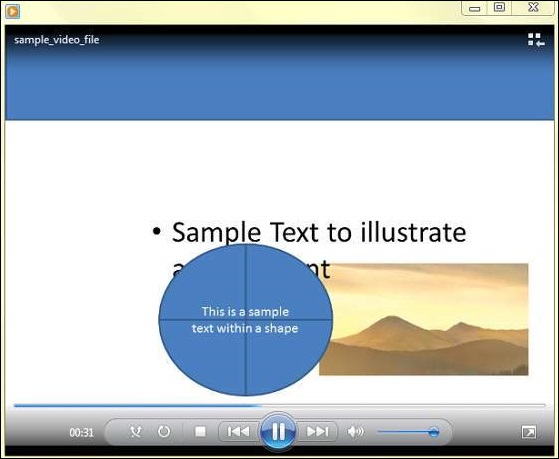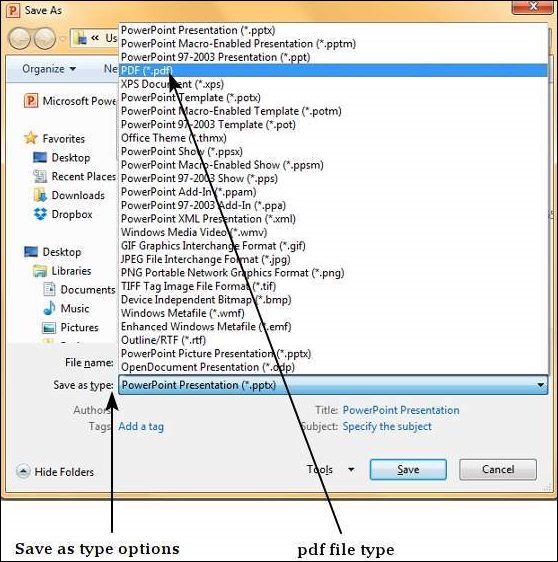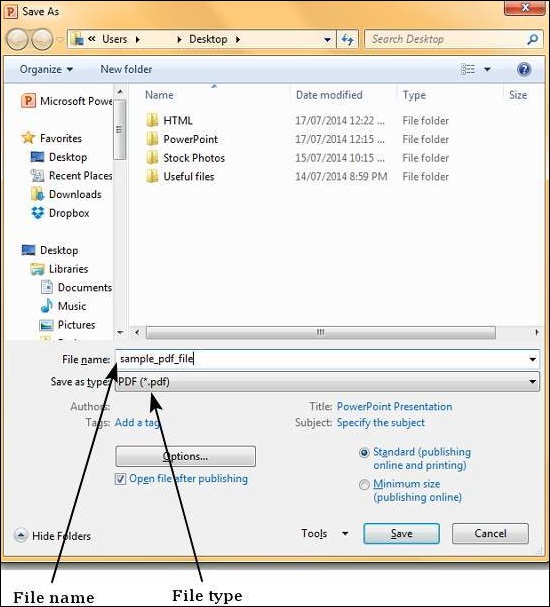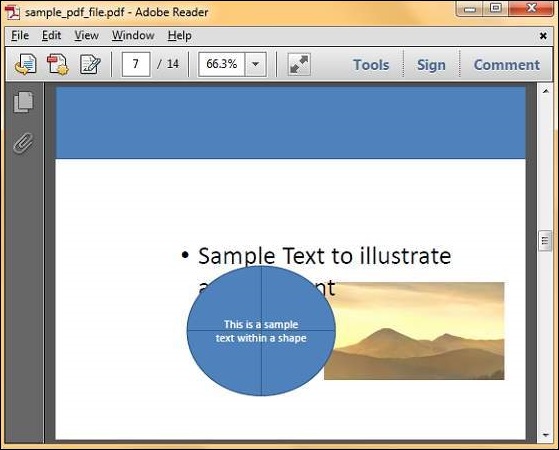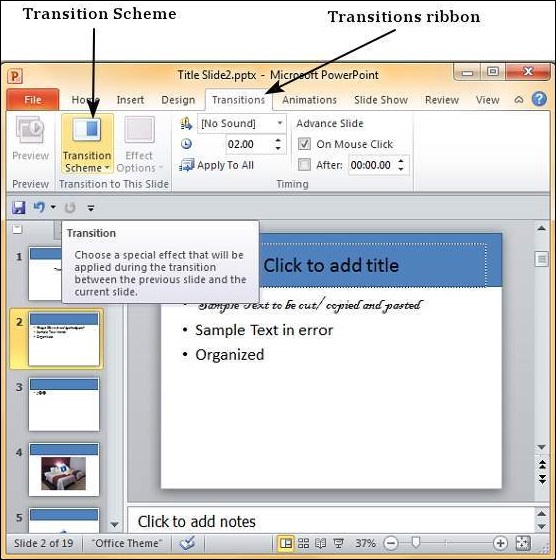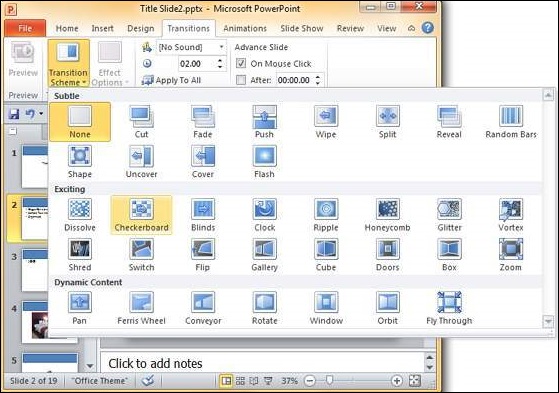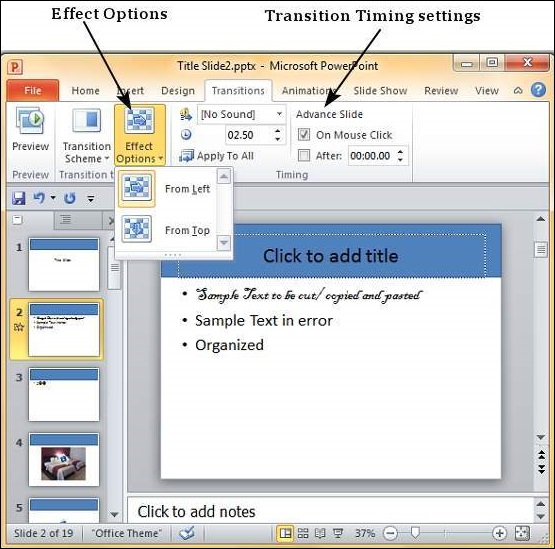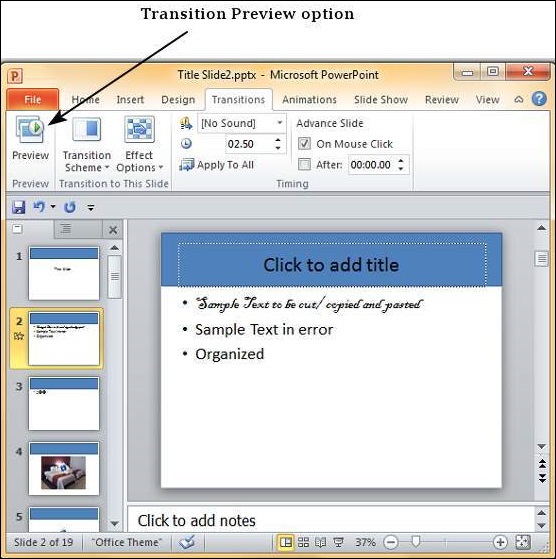Certain presentations are better suited for distribution as a CD to audience. In such cases, you can create a CD packaging which can be burned into a CD and distributed.
Given below are the steps to package your presentation for CD.
Step 1 − Go to the Backstage view under the File tab.
Step 2 − Click on Save & Send, select Package Presentation for CDoption and click on Package for CD button.
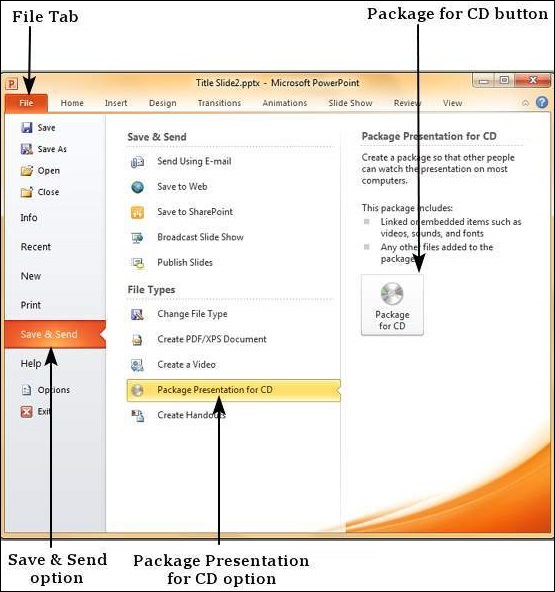
Step 3 − On the Package for CD dialog, select the package or CD name. Use the file management options of Add and Remove to add or remove more files to the package.
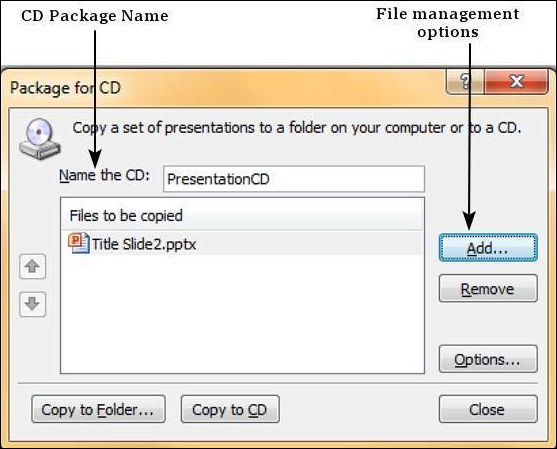
Step 4 − Use the Add Files to add files to the package. The default file type filter is set to presentations and shows, but you can change it to search any file type.
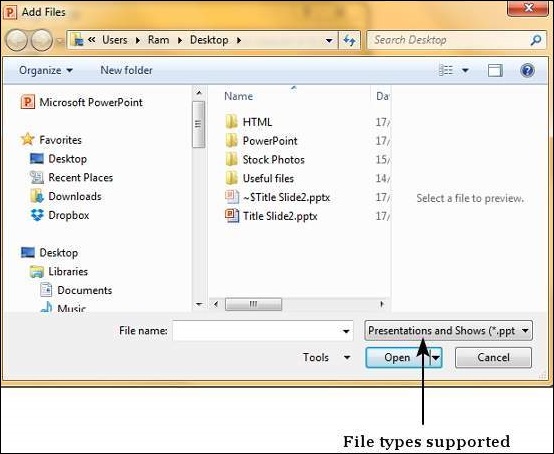
Step 5 − Once you have all the files ready for the package, click on "Copy to Folder" or "Copy to CD" and follow the steps to create the final package.
